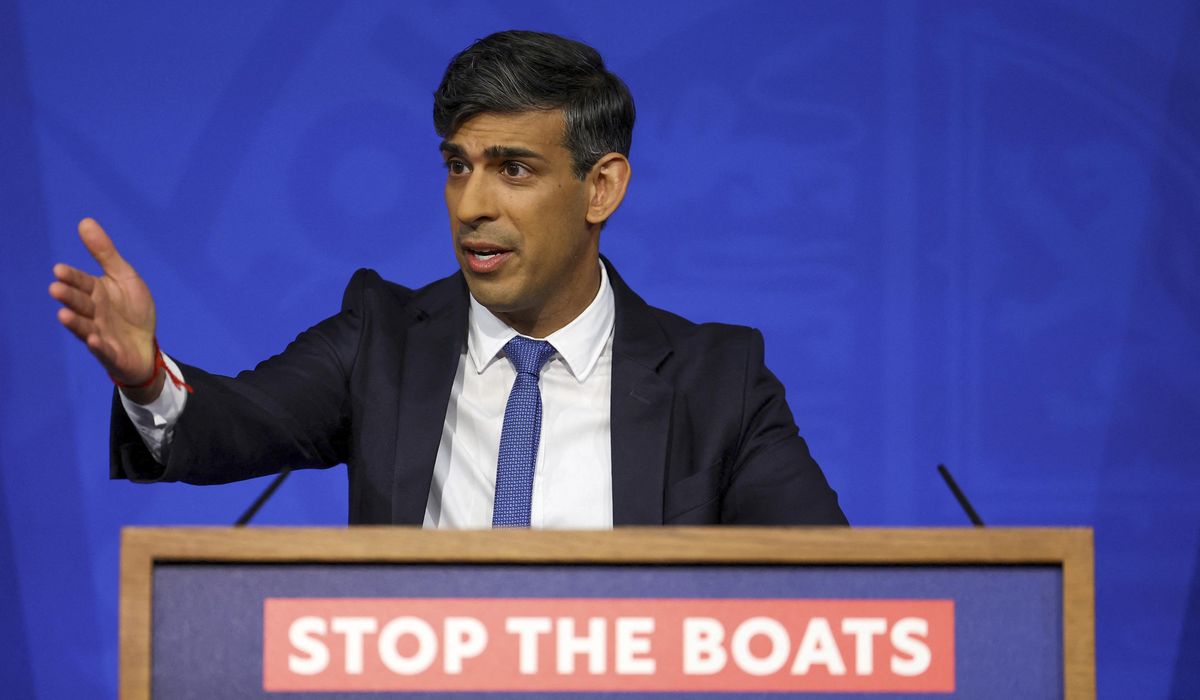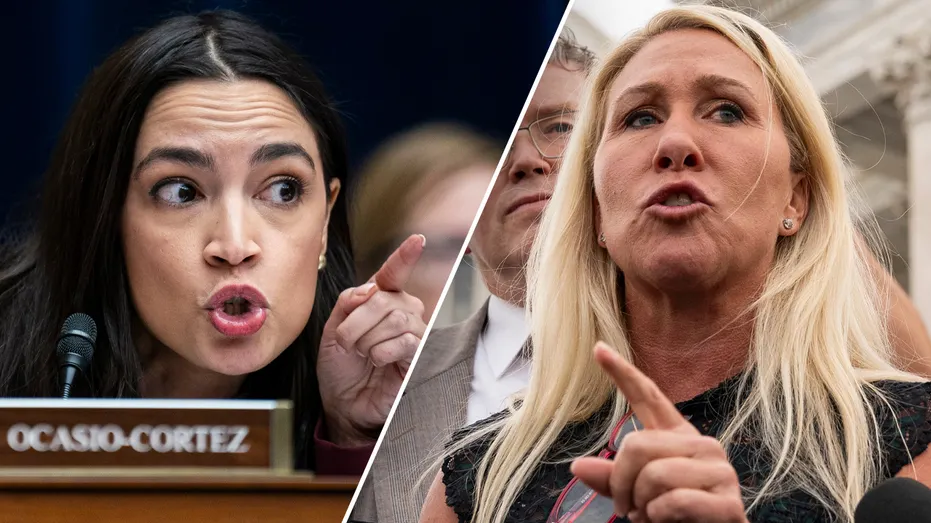

GUERNSEY, Channel Islands — The English Channel, like Central America’s Darien Gap for many U.S.-bound migrants, is a perilous gauntlet for those trying to reach Britain.
The jungles of the land bridge between North and South America bristle with danger, but the channel is deadly by its very nature, marked by chill and often rough waves.
The dangers of drowning and hypothermia do not prevent countless flimsy boats overflowing with migrants from attempting to cross the water barrier, 21 miles across at its widest point.
By one count, 121,489 people have used the route to land in Britain since 2018, with 29,437 trying to cross last year alone.
Refugees from Afghanistan, Albania, Iran, Iraq and Syria make up the majority of migrants. Many pay human trafficking gangs that prioritize profit over safety. News of small, packed boats foundering with deadly consequences is depressingly routine.
On April 23, as migrants clashed with one another and police on the chaotic French shore, massively overloaded rubber boats set off into the gray seas. A 7-year-old girl and four others died in the crossing.
In 2022, Britain’s ruling Conservative Party proposed a solution to handle the flow of illegal immigrants: Deport them to Rwanda.
Britain will pay the West African nation to accept migrants. The plan cleared its last political hurdle last week, and fearful migrants are now making another illegal journey by escaping to Ireland.
That has created a sudden border crisis and a potential blow-up in relations between Britain and Ireland.
‘Send them to Rwanda’
After 13 years in power in Westminster, the Conservatives must call a general election by January. The latest Poll of Polls finds Prime Minister Rishi Sunak facing a negative rating from two-thirds of the electorate. As in the U.S., illegal immigration is an emotive issue for many voters, particularly Mr. Sunak’s Conservative Party base.
One motivation behind the Tory-sponsored Brexit — the British departure from the European Union in 2020 – was to slow migrant flows by reasserting better controls of Britain’s borders. Brexit, however, did not bring the anticipated panacea.
Migrants continue to evade law enforcement on the eastern coast of the channel and head west for Britain. In April 2022, the Conservative government devised the plan to deport migrants to Rwanda.
London will pay Kigali to process and house planeloads of migrants, who will then be offered settlement rights in Rwanda.
The idea is not entirely new.
A 2001 Australian plan to ease migrant boat arrivals called for those caught to be deported to Papua New Guinea and Nauru. The move was judged to slow the pace of illegal immigration.
From 2013 through 2018, the Israeli government shipped North African migrants to Rwanda. The policy has had mixed success. In 2022, Denmark opened talks with Rwanda to establish a deportation protocol like London’s.
Critics labeled the Conservative Party plan “people-dumping” and “inhumane” and accused London of shoving the burden of illegal migrants onto a developing nation.
The Rwanda plan overcame a challenge in the High Court of Justice in London and a protracted game of “political pingpong” as it bounced between Parliament’s lower and upper houses.
A reluctant House of Lords finally consented last week, and the first planeloads to Rwanda are expected imminently.
Questions linger over Rwanda’s ability to deal with the flow of refugees. According to Migration Observatory, a think tank, Rwanda made 228 decisions on asylum claims in 2020. Britain made about 19,000.
Angering Dublin and Brussels
With the Rwanda plan shaping up, migrants in Britain, fearing deportations, are escaping across the closest last border: from Northern Ireland, a part of Britain, to the Republic of Ireland, an EU member.
Mr. Sunak said this proves that the Rwanda policy already serves as a deterrent.
“People are worried about coming here, and that demonstrates exactly what I’m saying,” he told Sky News over the weekend.
“If people come to our country illegally but know that they won’t be able to stay there, they are much less likely to come, and that’s why the Rwanda scheme is so important.”
Dublin is not so pleased.
“Every country is entitled to have its own migration policy,” Irish Prime Minister Simon Harris said over the weekend. “This country is not in any way, shape or form providing a loophole for any other country’s migration policies.”
Mr. Harris said Ireland will prepare legislation to send the migrants back into Britain.
That raises a double standard. Britain is not allowed to deport migrants who cross the channel back to France, which is also an EU member.
London threw down the gauntlet on Monday.
“Clearly, we are not going to start accepting returns from the EU just as the EU does not accept asylum returns from the U.K. to France,” Mr. Sunak’s spokesman said. “Even if Ireland was to pass legislation, it is up to the U.K. government to decide who we do and do not accept into the country.”
A meeting between senior British and Irish officials to discuss the standoff was canceled on Sunday evening on short notice.
Britain’s lively press has seized on the controversy.
“The public’s patience with the Channel crossings has been wearing … thin,” the right-wing Daily Telegraph opined on April 22. “Left-wing open borders extremists, including in Whitehall, will contemplate no action to bring the situation back under control. They have to be defeated.”
The left-leaning Guardian newspaper countered that “there is no known means of preventing people from traveling to the U.K. either because they are desperate to escape persecution, or determined to improve on dismal prospects elsewhere. The only realistic approach is long-term and multilateral, involving cooperation with governments across Europe and beyond.”
Analysts who follow the global migration debate are intrigued but concerned by the British experiment.
“There has always been background noise from migration, but now, there are these tectonic shifts,” said Michael Yon, an American researcher studying migration patterns in the southern U.S. border, the Darien Gap, Latin America, Ireland and Britain.
“This is replacement migration, replacing native populations, bringing people in from incompatible cultures,” he said. “I don’t know how we are going to get out of this.”













